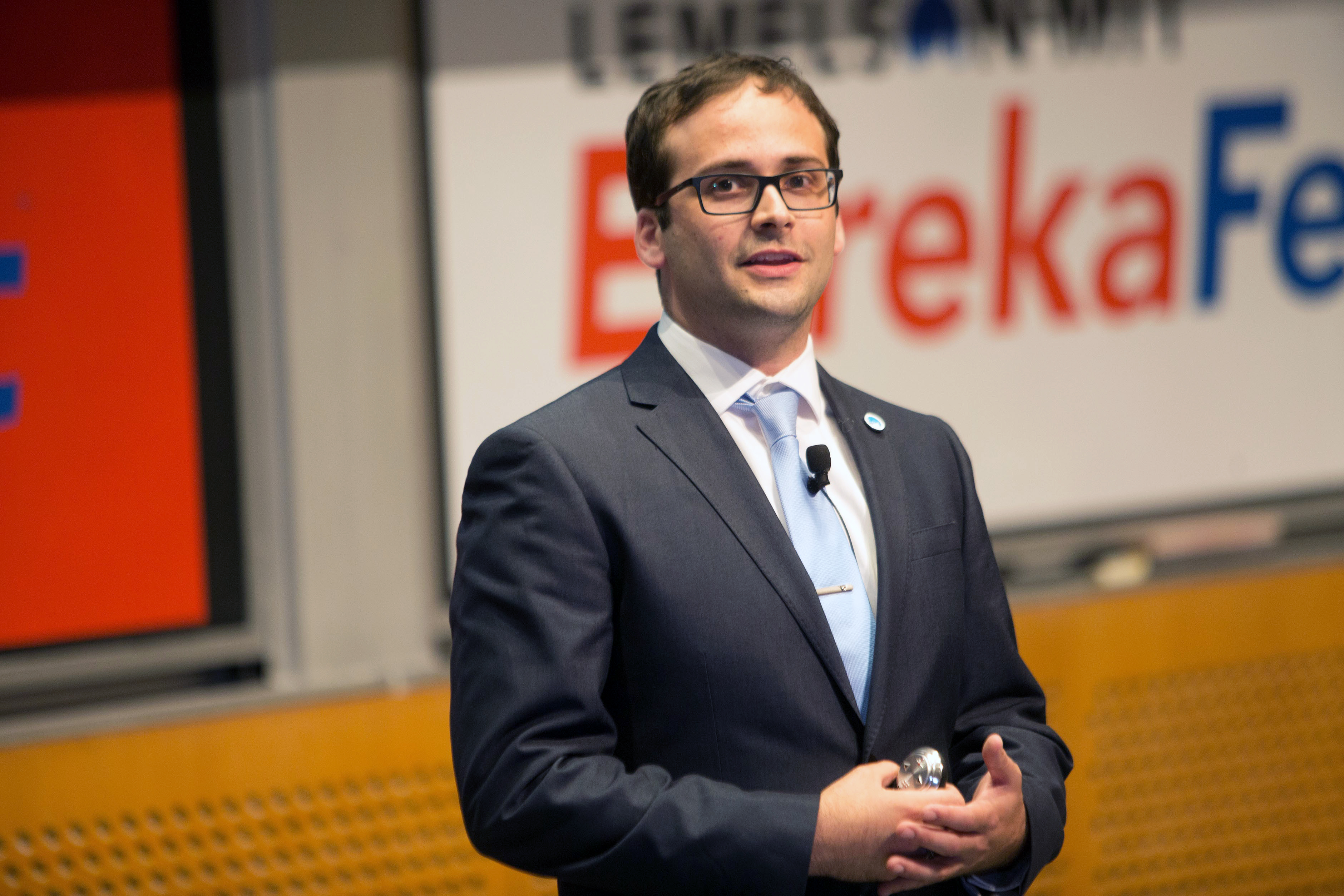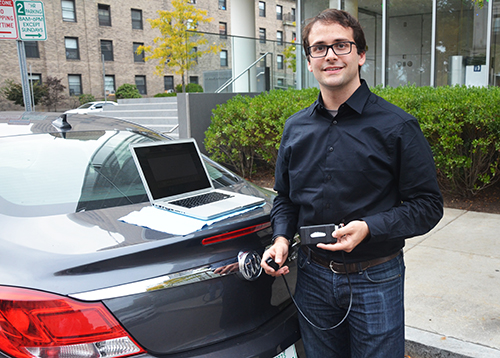Cars, Data, and Internet of Things
-
-
slice.mit.edu
Recommended

Josh Siegel ’11, SM ’13, PhD ’16, estimates that today’s modern car generates 25 gigabytes of data every hour and, of that data, he says we’re only storing and fully utilizing about 1-2 kilobytes. As an expert on both cars and the Internet of Things (IoT), this is just one of the many issues that this MIT postdoctoral associate in the Field Intelligence Laboratory is trying to tackle. “A lot of my work in the internet of things looks at how people throw out data that’s really valuable today,” says Siegel.
As a Detroit native obsessed with cars, robots, and anything having to do with engineering, it’s no surprise that Siegel ended up at the Institute and that after 10 years, he still doesn’t want to leave. His pursuit began with bachelor’s and master’s degrees from MIT in mechanical engineering—with involvement in the electric vehicle team and entrepreneurs club—and a UROP with Professor Sanjay Sarma around home energy and vehicle monitoring solidified his passions.
Siegel has a lot of ongoing projects and research interests, but he says they all focus on the stuff that gets lost in the data. “The IoT side is, how do you get better data out of things securely and efficiently so that you can control it safely and effectively. And then the car side is what can you do with data that’s been hidden until today or data that’s too busy, too dense to be analyzed. That could be traffic patterns, it could be driver behavior, it could be failure prediction…anything that we’re throwing away today that we shouldn’t be.”

Siegel has already started two companies based around utilizing this lost data. The latest application of his research findings is a new company called Data Driven, an app that can listen and sense the vibrations of your vehicle and tell you what’s going wrong. “It’s like Shazam for cars,” says Siegel. “We tell you what’s going wrong with your car just by listening to it or by sensing the vibrations. That's some work that I did during my PhD.”
Siegel’s PhD work also focused on making IoT more efficient and secure so it's resilient to hacking, offering the benefits without the risk. “It used to be that all of the data on the internet was put there by people,” says Siegel. “Now we have machines uploading information, we have services that do analytics and automatically store this information on a remote server. Something like 90 percent of the information on the internet was put there in the last two years, and that’s pretty remarkable.” This means that there are a lot of opportunities, he says, but there are also challenges to address in battery life, data transmission and storage limits, service infrastructure, and of course security, because information on the IoT can flow both ways.
Siegel and his companies have been recognized with numerous accolades, such as the Lemelson-MIT Student Prize, the MassIT Government Innovation Competition, the BMW EURECOM Summer School Ideation Prize, the Soldier Design Competition’s Boeing Prize, and the Cloud, IoT, and M2M Hero of the Year Awards in the Innovation World Cup. He holds eight pending and issued patents related to cars and traffic management, regularly publishes in academic conferences and journals, and his work has been featured in popular media such as WIRED.
One of the things that Siegel says he loves about MIT is the way it brings together interdisciplinary teams from a variety of different perspectives and backgrounds. This is exactly why Siegel has gotten involved in his most recent project, helping to devise a curriculum for and teach the inaugural MIT Internet of Things Bootcamp—led by Siegel and Professor Sarma, Vice President for Open Learning—the next MIT bootcamp following the week-long ventures leadership program, the MIT Global Entrepreneurship Bootcamp. The IoT bootcamp, which will accept applicants from different backgrounds and different levels of experience, will feature lectures as well as speakers from industry and academia, covering hardware and software, connectivity architecture, data analysis, and business opportunities.
“It’s a fantastic program because it really is the MIT mens et manus, all condensed into one week. We teach students about the enabling technologies supporting the IoT and help them get their hands dirty by building these things, we don’t just teach theory we have them put it into practice.”
Applications are currently being accepted for the May 2017 MIT IoT Bootcamp.







